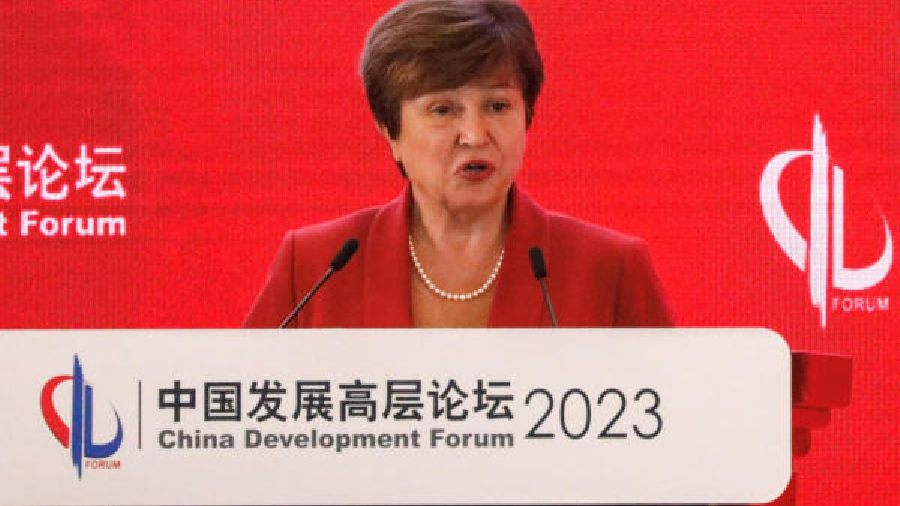The International Monetary Fund expects global economic growth to dip below 3% in 2023 and to remain at around 3% for the next five years, managing director Kristalina Georgieva said on Thursday, flagging increased downside risks.
That is the global lender’s lowest medium-term growth forecast since 1990, and well below the average growth of 3.8% seen in the past two decades.
Georgieva said strong monetary and fiscal policy actions to respond to the Covid-19 pandemic and Russia’s invasion of Ukraine had prevented a much worse outcome in recent years, but growth prospects remained weak given persistently high inflation. Bank failures in Switzerland and the US had exposed financial vulnerabilities that increased the downside risks for the global economy, she added.
“Despite surprisingly resilient labour markets and strong consumer demand, despite the uplift in China, we expect the world economy to grow less than 3% this year,” she said in a speech ahead of next week’s spring meetings of the IMF and World Bank.
“Growth remains historically weak now and in the medium-term.”
“With rising geopolitical tensions, with inflation still running high, a robust recovery remains elusive, and that harms the prospects of everyone, especially for the most vulnerable people and the most vulnerable countries,” she said at an event hosted by Meridian House and Politico.
Global growth dropped by almost half to 3.4% in 2022 following the shock of Russia’s war in Ukraine from the 6.1% rebound in 2021.
Georgieva said India and China would account for half of the global growth in2023, but about 90% of advanced economies would see a decline in their growth rate this year.
Low-income countries, saddled by higher borrowing costs and weakening demand for their exports, would see per-capita income growth staying below that of emerging economies, she said.
The IMF chief called on central banks to stay the course in the fight against inflation as long as financial pressures remained limited, but to address financial stability risks when they emerge through appropriate provision of liquidity.
Reuters











